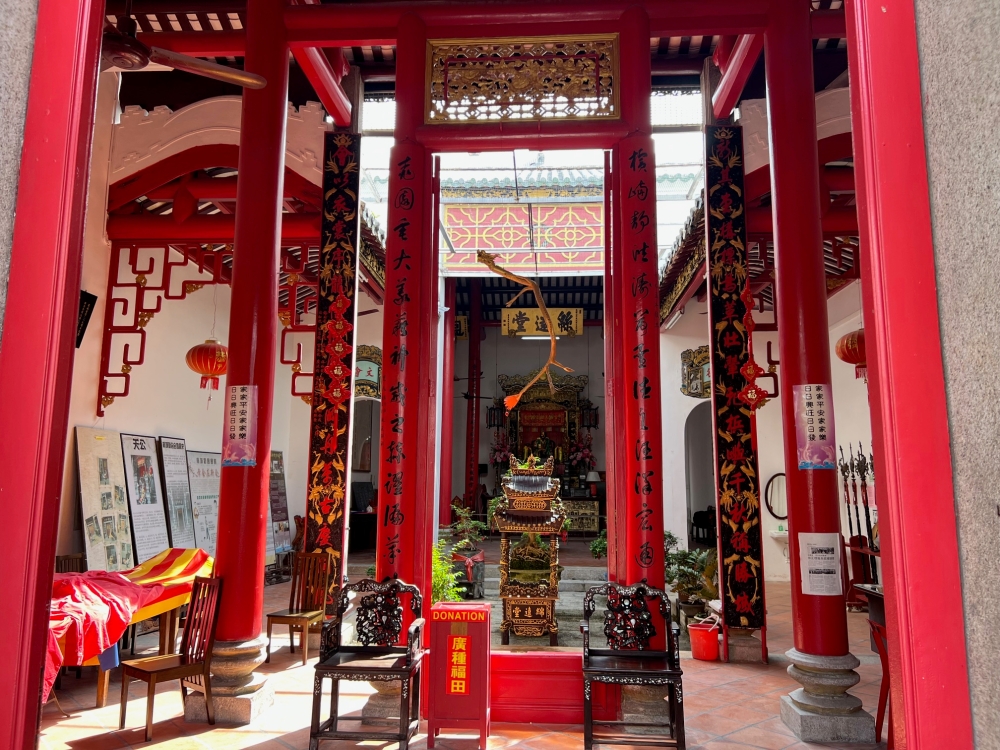GEORGE TOWN, July 5 — Tucked between rows of pre-war shophouses and modern office buildings along Bishop Street, the Sun Wui Wui Koon building which is in a recessed lot behind a stone fence with granite gate posts is barely noticeable.
It may look like another temple but the Sun Wui Wui Koon is actually an association that was established by immigrants from the Sun Wui district in the Guangdong province in China in the 19th century.
It served as a communal hub for those who came from the same district and shared the same dialectal heritage, in this case, Cantonese, where they provided assistance to new immigrants from the district with employment, housing and social integration.
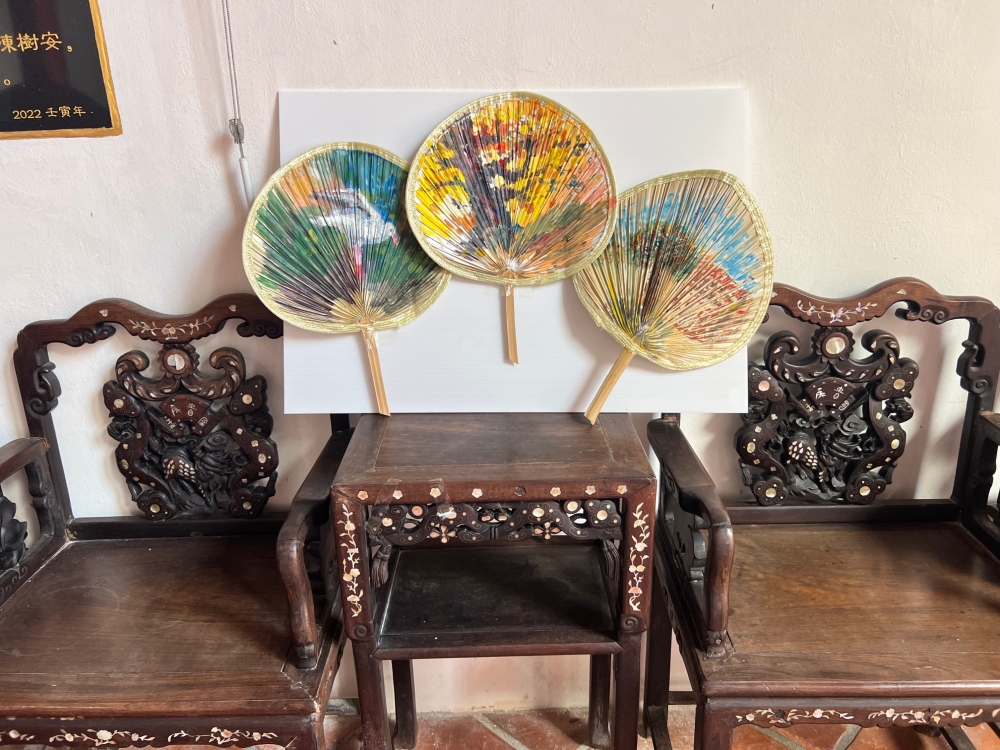
The Sun Wui Wui Koon holds palm leaf fan painting competitions annually as part of its cultural activities. — Picture by Opalyn Mok
Its Cantonese influence is evident in its architecture, especially the stone fence and granite gate posts along with original terracotta tiles that combined functionality with cultural symbolism.
Unlike the usual dragons that decorate the rooftops of most Chinese clan associations and temples, a pair of fish dragons, also known as Chiwen, stand on the roof of the Sun Wui Wui Koon.
Sporting the head of a dragon and the body of a fish, the Chiwen is believed to have the ability to ward off evil spirits and protect buildings from fire.
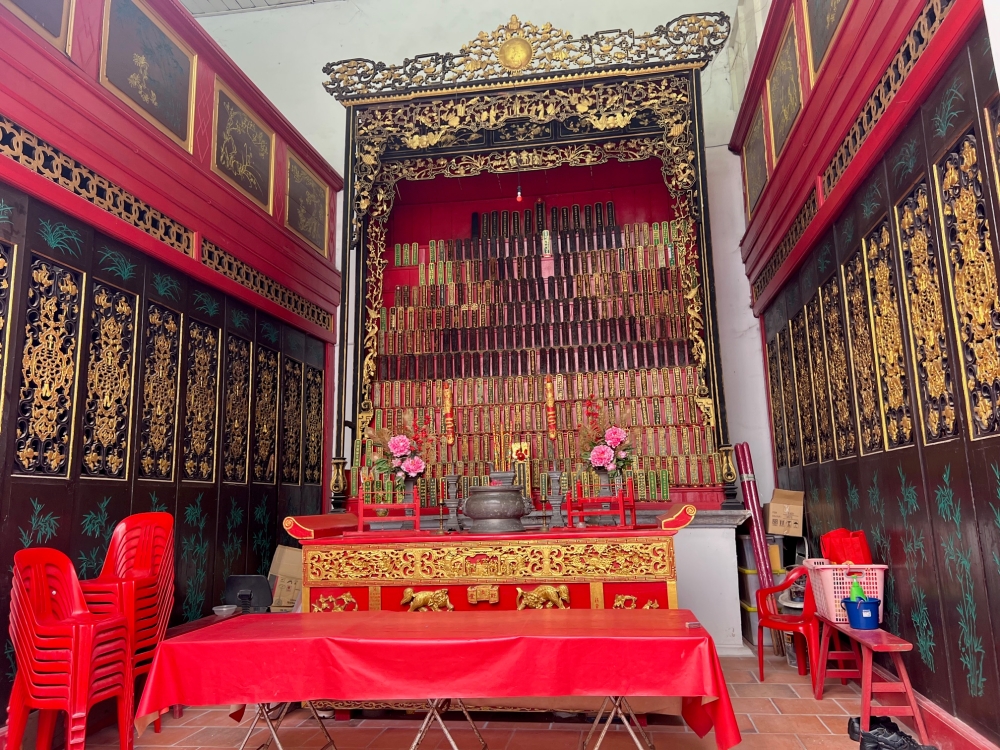
The rear section is the ancestral hall with tablets of members who have died. — Picture by Opalyn Mok
The Sun Wui Wui Koon, formerly known as the Kong Chow Mianyuan Hall, has a history of 223 years but the guild hall was only established in 1873.
The Sun Wui district in China, known as Xin Hui in Mandarin, is famous for its palm trees so flanking the entrance to the association are a pair of potted palm trees.
Due to the availability of palm trees in that district, the leaves are often used for various crafts and other purposes including palm leaf fans.
The association would hold annual palm leaf fan painting competitions as part of the cultural activities to attract more young members to join the association.
Irene Teh, a clerk in the association, said the association members are mostly older folks and most of their descendants do not have any interest to join the association.
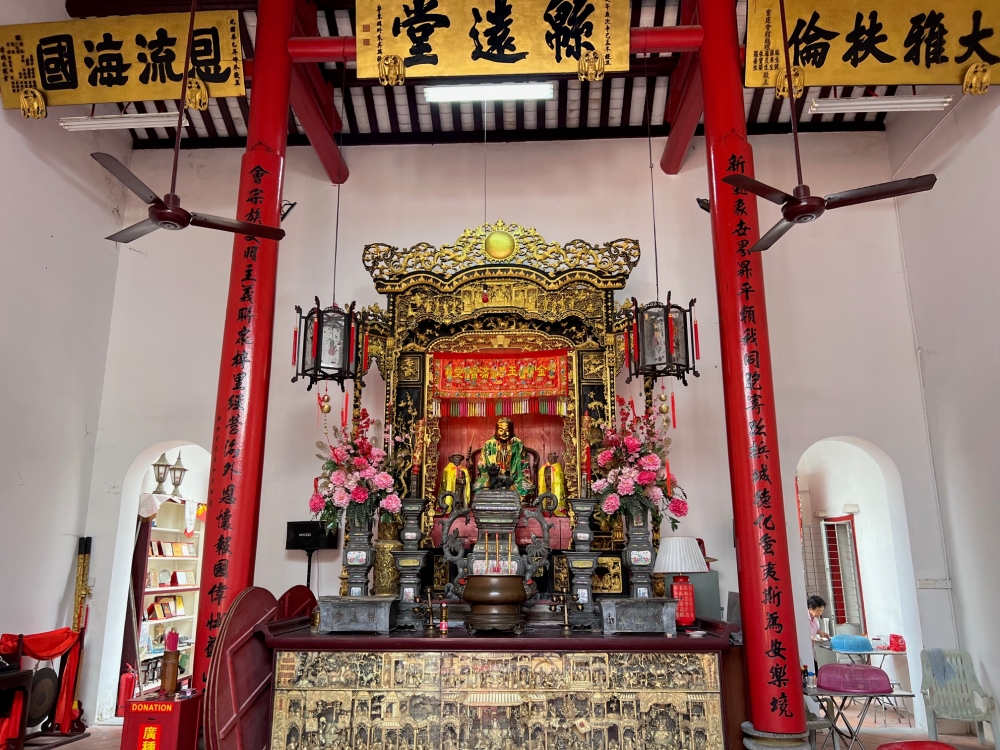
The main altar features Guan Gong, the main deity worshipped by members for health, safety, wealth and success. — Picture by Opalyn Mok
“So they are holding more activities to attract the young,” she said.
One of these is an annual celebration to honour those who achieved excellence such as members who received their Masters’ degrees, PhDs or good academic results or members who received international accolades in various fields.
“There will be a whole ceremony where they can proudly walk through the inner grand doorway and at night there will be a grand dinner,” she said.
Just a few steps from the main entrance of the building is another doorway in the middle facing the main altar. The doorway is supported by two red beams with ornate carvings at the top and a carved dragon hanging down.
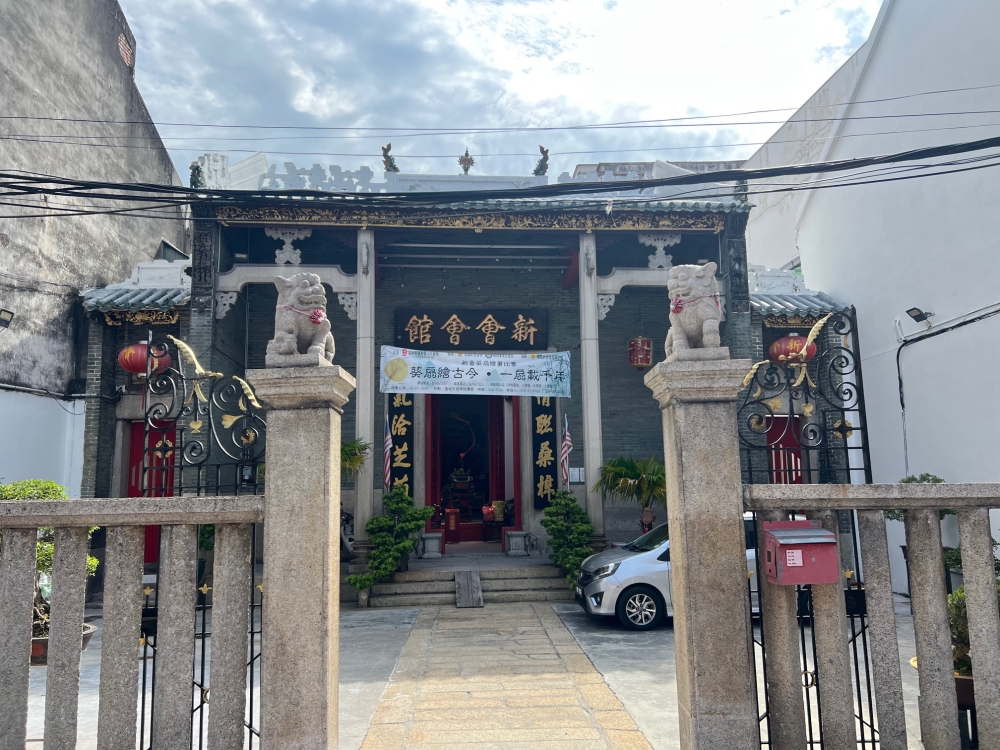
The Sun Wui Wui Koon has a stone fence and granite gate posts, which are Cantonese architectural features. — Picture by Opalyn Mok
Teh said the door is normally closed but now it is open as they will be holding the grand ceremony to celebrate achievers on July 13.
“The ceremony is usually held around the same time as Guang Gong’s birthday which falls on the 24th day of the sixth lunar month,” she said.
As with most provincial guilds and clan associations, they practise folk religion and the main deity of worship is Guang Gong or Guan Yu, the God of War known to provide protection for health and safety as well as give blessings for success in career and academic achievements.
The central area of the building used to be a place for community gatherings and at one point in time, the association used to have lion dance and wushu training sessions for members.
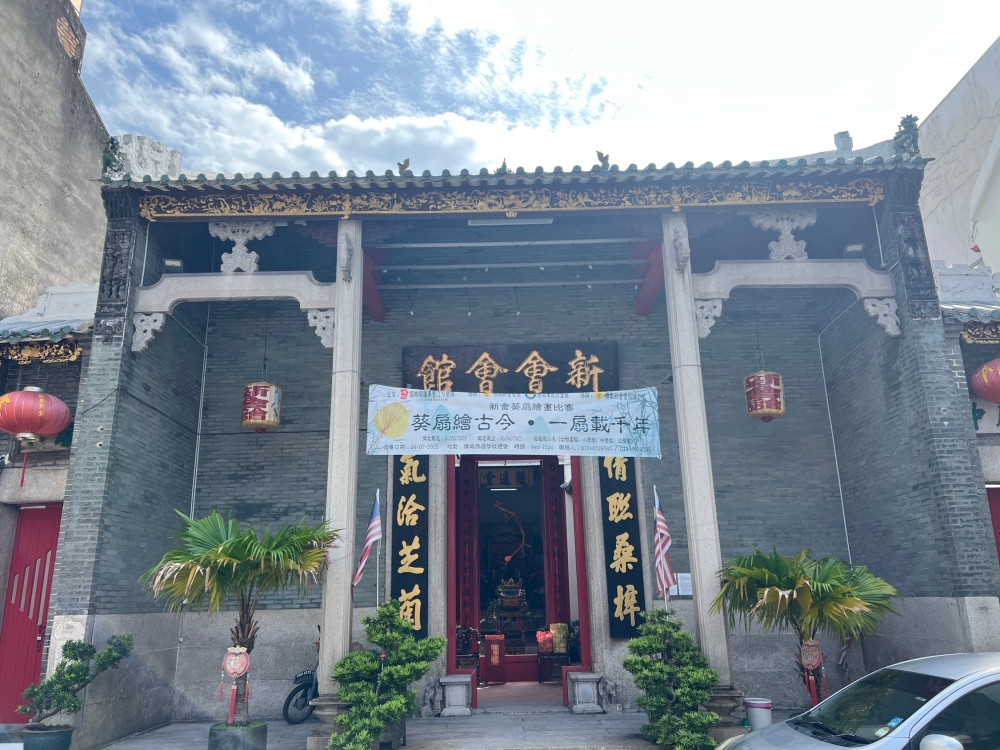
The two potted palm trees flank the entrance to the association as Sun Wui district is known for its palm trees. — Picture by Opalyn Mok
However, the training stopped in the late 1990s when the old masters died.
In the rear section, just behind the main altar, is the ancestral hall where tablets of ancestors are placed for descendants to pay their respects.
The ancestral tablet of one of the more famous members of the association, Lim Toh Kai, is also placed prominently in the ancestral hall.
Lim was the grandfather of Dr Wu Lien Teh, a Malayan physician known for his work in public health and he was one of the contractors who helped build Fort Cornwallis.
The Sun Wui Wui Koon is normally open to visitors from 7am to 3pm daily.
It will be holding an open house with volunteers to guide visitors and tell them the history of the association during the Historic Building Open House programme in conjunction with Penang heritage celebrations on July 7.


